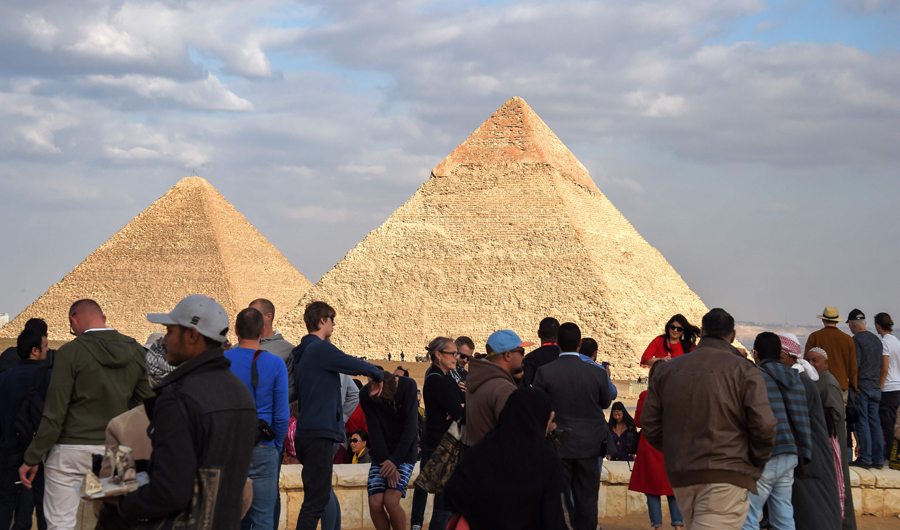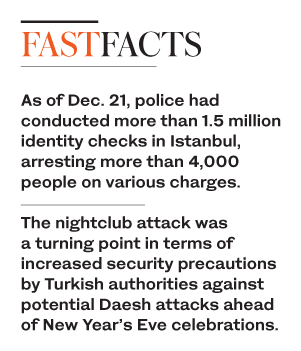Iraqi education minister resigns over brother’s Daesh links
BAGHDAD: Iraq’s new education minister has resigned over allegations her brother was a leader with Daesh just days after she was handed the post.
The scandal is the latest blow to Prime Minister Adel Abdul Mahdi who has still not completed his Cabinet amid deep divisions between the Parliament’s main political blocs over the key positions.
Shaima Khalil Al-Hayali was approved by Parliament last week to head the Education Ministry but had not yet taken the ministerial oath.
She submitted her resignation on Saturday to Abdul Mahdi after intelligence information emerged that her brother was a Daesh leader in Mosul between the summer of 2014, when the extremist group overran the city, and October 2016, when it was liberated by security forces.
Laith Khalil Al-Hayali, was an engineer working for the Nineveh Water Directorate, local security officials in Mosul told Arab News. He was dismissed from his post before 2014 for his association with Daesh, but he was reappointed as a director after 2014 when the militants seized the city.
Websites linked to Daesh published videos showing Laith praising the militants and inciting people to fight the Iraqi military.
The intelligence also said that two of Laith’s sons were killed fighting for Daesh during the liberation of Mosul in 2016.
The first was killed in clashes between the militants and security forces, while the second one blew himself up in a bid to halt advancing forces.
The minister did not deny her brother’s involvement with Daesh but said he was forced to work with them and that he showed up in the videos under the threat of being shot.
The information is an embarrassment to the leaders of the pro-Iran Al-Binna’a coalition who nominated Al-Hayali.
It was not clear whether the resignation was Al-Hayali’s decision alone or whether her backers had ordered her to quit.
Abdul Mahdi was sworn in at the end of October but has faced a series of crises during his short time in the position.
This is not the first time he has presented his preferred candidates for ministerial positions without checking their security and political backgrounds — something that has deepened mistrust between the prime minster and political parties that could bring down his government.
He is still without without three key ministers — defense, interior and justice amid a dispute between the two main blocs in Parliament over the candidates, lawmakers told Arab News on Sunday.
Reform, led by the influential Shiite cleric Muqtada Al-Sadr, opposes the candidates nominated by Al-Binna’a for interior and defense. Al-Binna’a is led by Hadi Al-Amiri, commander of the Iran-backed Badr Organization, the most powerful armed faction.
Abdul Mahdi has not commented on Al-Hayali’s resignation and not even announced whether he has accepted her letter.
The incident has brought to the forefront allegations against other new ministers. They include Communications Minister Naeim Al-Rubaie, a former senior figure in Saddam Hussein’s Baath party. Anyone linked to the organization is banned from involvement in Iraq’s government.
“It would be better for Abdul Mahdi to accept her (Al-Hayali’s) resignation to save face,” a key negotiator from Reform told Arab News.
“We asked him at the first session of Parliament to submit the names of the candidates to the security services to be checked. We also demanded that they be presented to the bodies of integrity and accountability and justice, but our requests were ignored.
“The result is that the government now includes a minister representing Daesh, another one representing Al-Qaeda and a third one representing Baath party.”
Iraq has struggled to form a government since an election in May led to two main parliamentary camps, one pro Iran and the other anti. An agreement in September broke the deadlock, with the two coalitions agreeing to try and negotiate a new Cabinet led by Abdul Mahdi.

Iraqis demand US troop pulloutTrump declares end to US ‘policeman’ role in surprise Iraq visit



 The Turkish military is preparing another major operation against terror groups, including Daesh, in Syria.
The Turkish military is preparing another major operation against terror groups, including Daesh, in Syria.